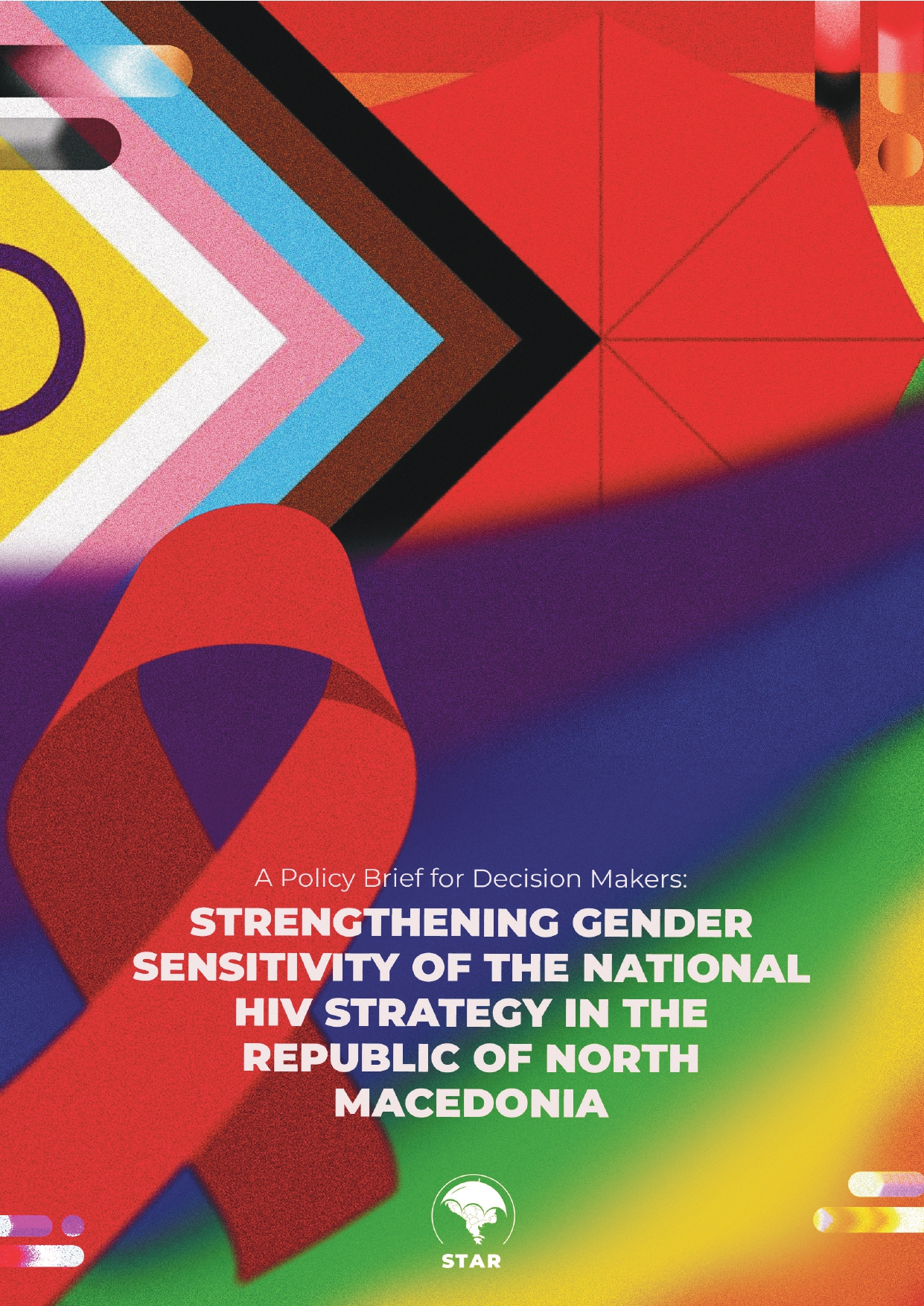The HIV prevention services offered by the civil society organizations in the Republic of North Macedonia were introduced, established and developed in the period between 2005 and 2017 with the support of the Global Fund to Fight AIDS, Tuberculosis and Malaria, which invested over 25 million dollars to develop and sustain the infrastructure and capacities in the national HIV response. Ever since 2018, the point at which the Global Fund’s support ceased, the Government of the Republic of North Macedonia took over the commitment and obligation to finance, sustain and develop the national HIV prevention response among key populations via the Ministry of Health, based on the National HIV Strategies and the Annual Protection of the Population from HIV Programs.
Since 2018, the Government and the Ministry of Health have shown weak political will to develop this response, and since 2022 without any expert discussion and involvement of the civil society organizations and key populations affected by HIV in the decision- and policy- making processes, they have begun to arbitrarily cut the funds projected for the annual HIV programs which also resulted in their untimely commencement. This has created huge gaps in the availability of HIV prevention services, as well as other services for sexual and reproductive health (SRH) and posed a grave danger to extinguish or reduce a portion of the already established services, which in turn jeopardized public health and the health of tens of thousands of citizens from marginalized communities who are at particular risk or affected by HIV.
According to the World Health Organization (WHO), transgender people are one of the most vulnerable populations at particular risk of HIV (which can be up to 49 times higher compared to other populations), and the lack of adequate services for transgender people can lead to exponential exposure to HIV, i.e. infection and further transmission in this community.
This report will attempt to document the major problems and barriers which key populations face, transgender people included, in the access to HIV services, and it will offer specific directions in terms of promoting gender sensitivity in the national HIV programs in the Republic of North Macedonia.
This research was developed as part of the project “Community Mobilization to Mitigate Funding Cuts and Gender Inequality in National HIV Programs for Sex Workers in North Macedonia”. by the civil society organization STAR-STAR Skopje, in close collaboration with TransFormA – Initiative for Protection and Promotion of Transgender People’s Rights in the Republic of North Macedonia.
This publication was published as an integral part of the Regional Project “Sustainability of services for key populations in the Region of Eastern Europe and Central Asia” (SoS_project 2.0), implemented by a consortium of organizations led by the Alliance for Public Health in partnership with the “100% Life”, with financial support by the Global Fund.
The views expressed in this publication are those of the authors and may not reflect the views of the consortium organizations as well as the Global Fund.
The Global Fund was not involved in the agreement and approval of either the material itself or its possible conclusions.
The Policy Brief is available in Macedonian and English and can be read/downloaded in its entirety at the following links:
Within the framework of the Policy Brief, Recommendation Paper have been prepared in Macedonian and English:
EN version: Recommendation Paper: Reducing Gender Barriers Among Transgender People in the National HIV Programs

